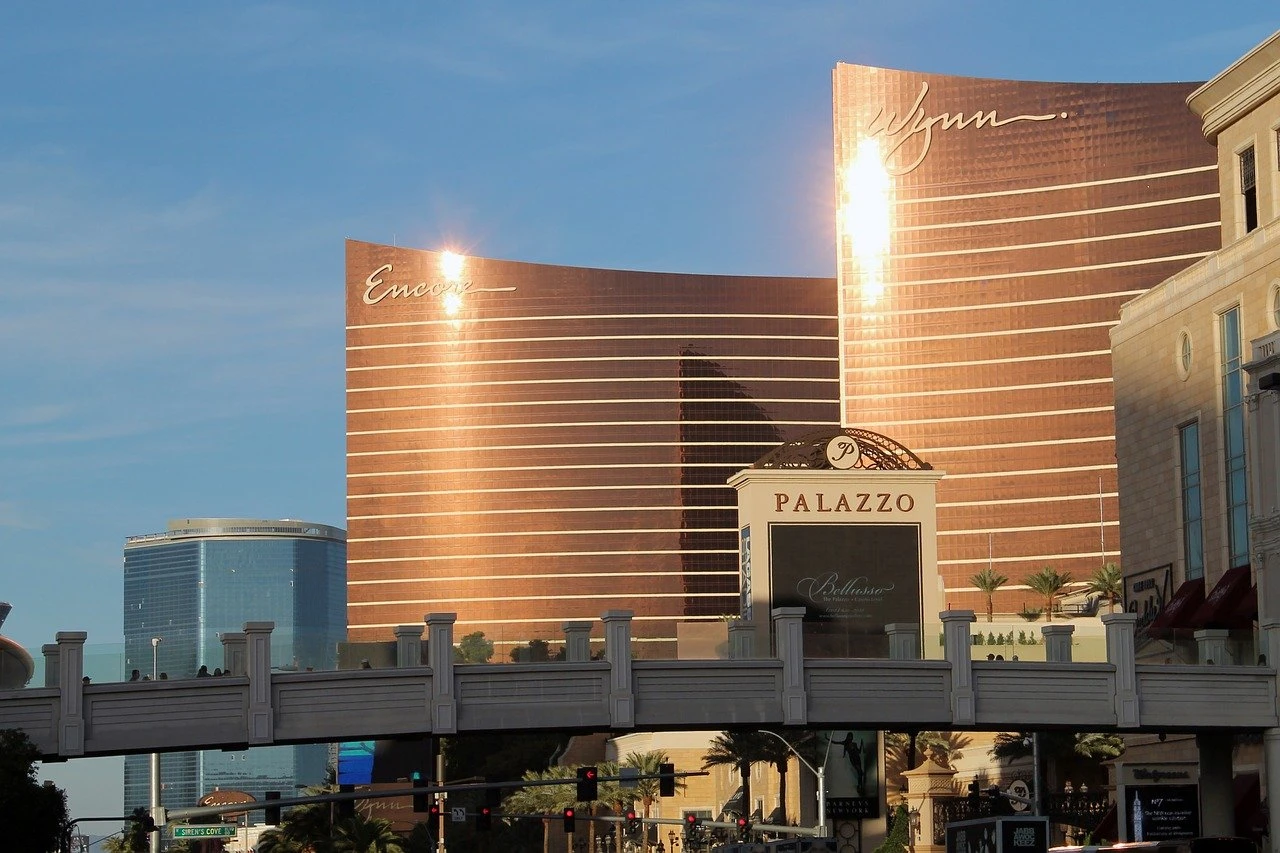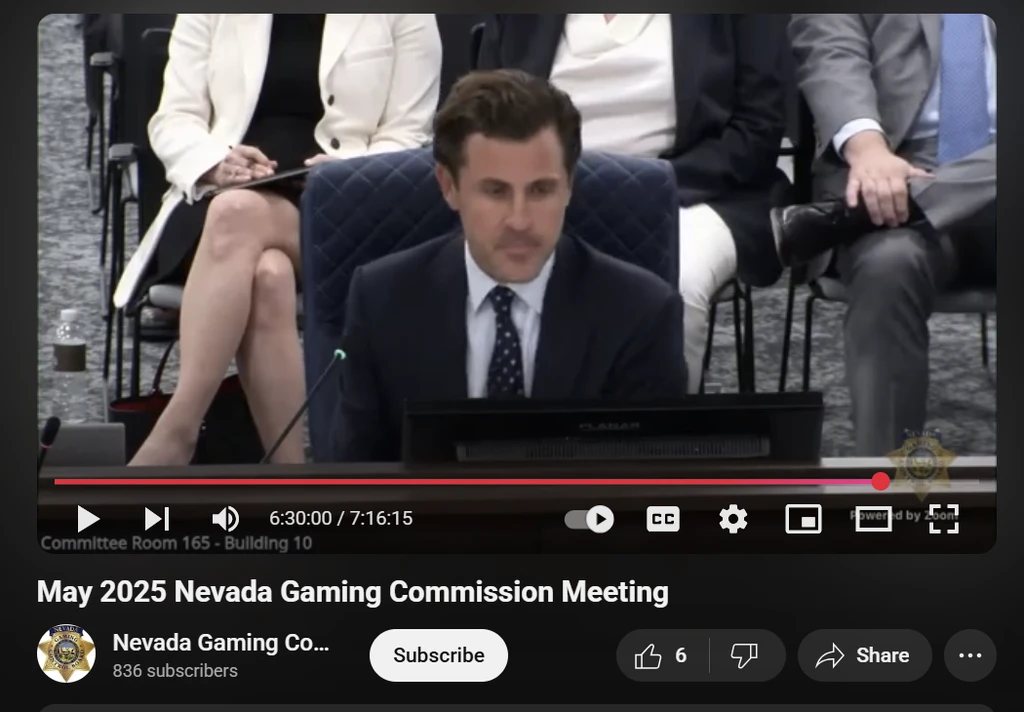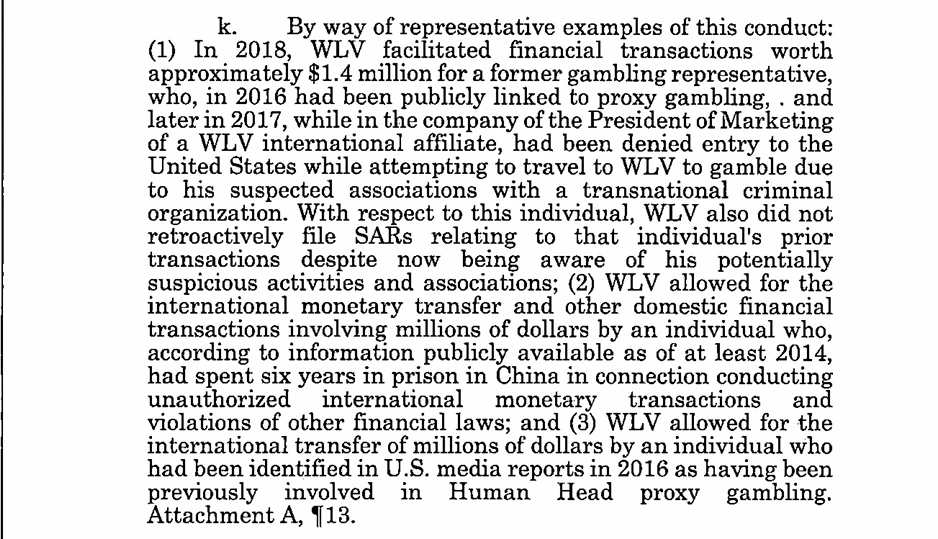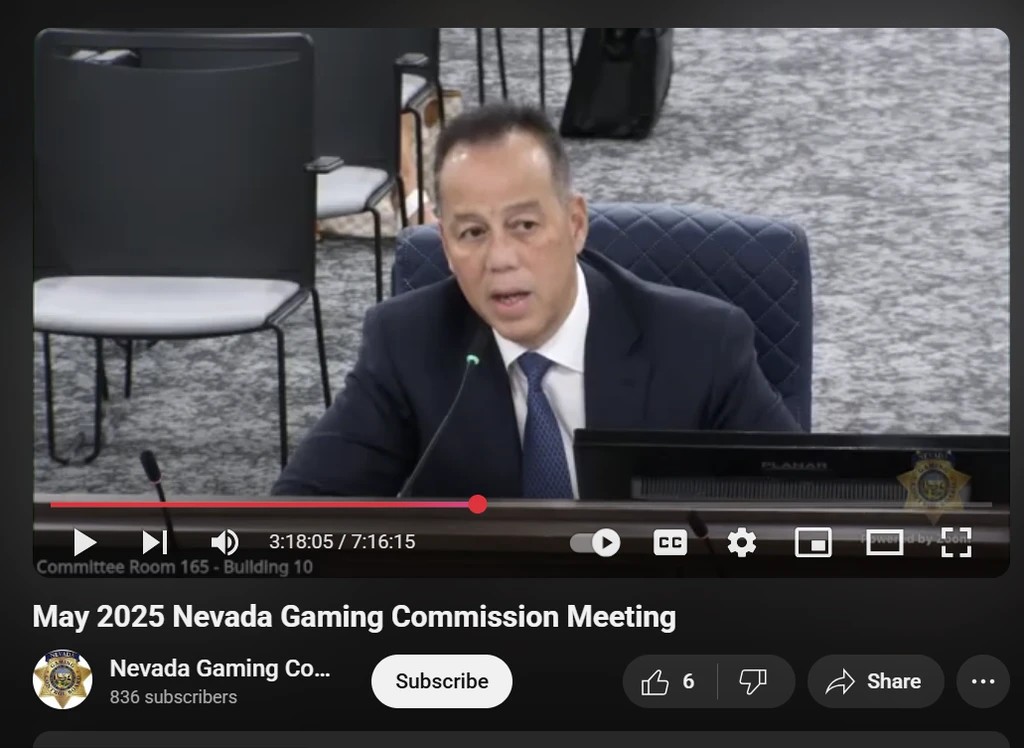Despite criticism of the casino’s history of allowing practises involving unregistered money transmitting businesses, the NGC approved the settlement by a 4-1 vote.
After three grueling, intense hearings on anti-money laundering practises across the Las Vegas Strip, certain members of the Nevada Gaming Commission are fed up with the culture of noncompliance inside some of the world’s largest casino properties.
At Thursday’s hearing with top brass from Wynn Las Vegas, NGC Commissioner George Markantonis wore his emotions on his sleeve. Depicting the allegations from a six-count regulatory complaint as a “body blow” to the reputation of the company, Markantonis did not mince words in his prepared remarks. A former president of Las Vegas Sands, Markantonis went one step further, describing the charges as a blow to the commission itself. Tested by critiques of perceived leniency in two other cases this year, Markantonis and the NGC had a chance to make amends.
Then about 29 minutes later, Markantonis spent little time in contemplating his decision. A neophyte on the NGC, Markantonis joined three other commissioners in approving a stipulated settlement with Wynn. Upon the completion of a tense 90-minute hearing, the NGC voted 4-1 to approve the Nevada Gaming Control Board’s (NGCB) $5.5 million settlement with the company.
The complaint stems from a September 2024 non-prosecutorial agreement with the Justice Department. Under the NPA, Wynn forfeited $130 million to settle allegations that it conspired with unlicenced money transmitting businesses worldwide to transfer funds for the financial benefit of the casino. The settlement is the largest of its kind by a casino with the federal government.
Just one commissioner, 2019 appointee Rosa Solis-Rainey, voted against the settlement. In explaining her decision, Solis-Rainey described the amount of the settlement as comparatively low relative to the severity of the allegations.
Millions in transactions
Solis-Rainey called attention to an individual who operated, managed or supervised multiple unlicenced and unregistered money transmitting businesses in the US. According to regulatory and court filings, the individual conducted more than 200 transfers with bank accounts controlled by Wynn Las Vegas or associated entities. In total, the individual conducted transactions on behalf of no less than 50 casino patrons, amounting to $17.7 million, prosecutors allege.
While the individual was not mentioned at Thursday’s hearing by name, the fact pattern comports with charges against Juan Carlos Palermo, an Argentinian national who reached a plea agreement with US federal prosecutors in 2022.
Over a nine-year period through 2020, Palermo and his unlicenced money transmitting business transacted with clients in at least 15 countries abroad, including Hong Kong, the United Arab Emirates and the Cayman Islands. The NGCB referenced Palermo, an independent agent of Wynn Las Vegas, seven times in the 48-page complaint.
Wynn Las Vegas will pay $5.5M for anti-money laundering violations involving years of unlicensed money transfers, the latest in a string of Strip fines this year https://t.co/HQpMhTNep1 https://t.co/HQpMhTNep1
— iGB (@iGamingBusiness) May 16, 2025
Palermo’s business enabled clients to conduct international monetary transfers through a series of underground financial networks while circumventing laws and regulations regarding monetary transfer in the US, prosecutors stated.
In March 2018, Palermo transferred $200,000 from a bank in Uruguay to an account he managed in the US. Four years later in federal court in California, he accepted a deferred prosecution agreement from the government.
All told, the conspirators conducted no less than $130.1 million in financial transactions through the money transmitting businesses, according to court files.
Blacklisted entities
In a statement released by Wynn Resorts, the company took responsibility for the violations but asserted that the improper actions were undertaken by several rogue employees. Moreover, Wynn claimed the company “severed ties” with the employees years ago, while fully complying with the investigation. During Thursday’s hearing, attorneys for Wynn told the commission that at least six employees implicated in the investigation are no longer with the company.
On 24 June 2014, Wynn Las Vegas rejected an independent agent’s attempt to transfer funds anonymously through a third-party entity. Wynn apparently rejected the transaction because it originated from a “furniture company” that had wired money for 35 other Wynn patrons, according to court records.
By 4 July, however, the independent agent, acting again as an unlicenced money transmitting business, used a different third-party entity to wire funds to the casino. This time, Wynn accepted the transfer.
Eric Aldrian, chief litigation counsel for Wynn Resorts, provided some clarity on the transactions at Thursday’s hearing. At the time, Wynn policy allowed independent agents to pay off outstanding markers on behalf of their patrons, a practise also permissible under state law, Aldrian noted.
“The 200 transactions were absolutely seen to us, they were visible and they did not skirt our AML program,” he told the commission.
A longstanding business relationship
By 2015, Wynn Las Vegas blacklisted two entities utilised by the independent agent to facilitate the transactions, he added. Nevertheless, the agent continued to conduct business with the casino through a Bank of America account located in Florida.
The agent used the bank to facilitate transactions with Wynn until April 2021, when the company learned that he charged a 6% commission to patrons.
The unsavoury practise took him from status as an independent agent and “into the realm” of being an unlicenced money service business, Aldrian contends.

By definition, a money transmitting business is one that accepts currency or funds denominated in the currency of a country and transmits the funds through a financial agency, financial institution or an electronic funds transfer network. Federal prosecutors included the definition in the September 2024 NPA with Wynn Las Vegas.
Solis-Rainey criticised Wynn staff for its failure to detect the series of suspicious transactions. She also criticised the company’s decision to conduct business with the agent for six additional years after blacklisting the two entities.
Failure to identify suspicious activity
Palermo was not the only independent agent who transacted with Wynn over the last decade. In 2018, Wynn Las Vegas facilitated financial transactions worth approximately $1.4 million for a former gambling representative who had been publicly linked to proxy gambling, according to court records.
A year earlier, US authorities denied the individual entry into the country due to his suspected association with a transnational criminal organisation. Despite awareness of potential suspicious activities, Wynn never filed a retroactive Suspicious Activity Report on the individual, according to prosecutors.
In another instance, Wynn Las Vegas allowed for international monetary transactions of millions of dollars from an individual who spent at least six years in a Chinese prison in connection with unauthorised financial transfers, prosecutors alleged.
Flying Money and Human Hat schemes
The complaint also detailed several other methods that the company utilised to further the conspiracy. The conspirators engaged in one plot known as a “flying money” scheme where a money processor acting as an unregistered money transmitting business would be introduced to a Wynn international patron who could not readily access cash in the US.
The introduction would typically be made by the patron’s host, whose job it was to facilitate the patron’s play at Wynn. In turn, the money processor would collect US dollars from a variety of third parties and deliver that cash to a Wynn patron, according to prosecutors.

Another violation surrounds so-called “human hat,” or “human head,” gambling. The practise simply involves a gambler serving as a proxy for an individual who is prohibited from gambling by the casino. In some cases, the banned individuals stood mere feet from the proxy, offering instructions on how to gamble without physically handling the chips.
In another documented case, Wynn Las Vegas allowed for the international transfer of millions of dollars by an individual who reportedly took part in “human head” proxy gambling, according to prosecutors. Solis-Rainey took Wynn to task for not spotting instances of proxy betting on the casino floor.
The trilogy
The hearing on Thursday marked the third time that the NGC convened in recent weeks to discuss a stipulated settlement involving a major Strip property. In March, the NGC approved a $10.5 million fine against Resorts World Las Vegas for a slew of AML deficiencies. RWLV accepted the fine, but it neither admitted nor denied the proposed violations.
The conduct at RWLV involved allegations against Matt Bowyer, the bookmaker of choice for Ippei Mizuhara, the former interpreter for Shohei Ohtani. Mizuhara wagered at least $325 million with Bowyer’s illegal sports betting ring, incurring net losses of $40.2 million. Weeks later, the NGC convened again to approve a settlement with MGM Resorts.
Bowyer again played a role in the settlement, amid allegations that he gambled at MGM at least 300 separate times even though casino officials knew of his occupation as an illegal bookmaker. Unlike RWLV, MGM expressed contrition for the violations accepting full responsibility for the infractions. MGM accepted an $8.5 million fine, $2 million less than the one given to RWLV.
Last week, Jeff Mitchell, the lead prosecutor in the Bowyer and Mizuhara cases, left the US Attorney’s Office for the Central District of California.
Jeff Mitchell, the lead prosecutor in the #Ippei case, has left the USAO for the Central District of Calif, multiple sources told IGB. Mitchell also served as the lead prosecutor in the Matt Bowyer case. A replacement for Mitchell in the Bowyer matter has not been named. pic.twitter.com/41bmEEY1m6
— Matt Rybaltowski (@MattRybaltowski) May 19, 2025
A distinction from the others
Attorneys for Wynn Resorts argued Thursday that the facts of the case differed considerably from the two preceding ones. The settlement with the Justice Department pertains to violations of Title 18, United States Code, Section 1960, on unlicenced money transmitting businesses, they noted.
While the others had a direct relationship with matters under the Bank Secrecy Act (BSA), the Wynn settlement was not a BSA case, said Erica Okerberg, outside counsel for the company. In the case of Wynn, regulators did not accuse the casino of transacting with illegal bookmakers. Okerberg outlined a host of remediation plans by Wynn to mitigate the risks of future violations.
Notably, there were no allegations that any individuals laundered money through Wynn Las Vegas, said Nona Lawrence, a Nevada deputy attorney general. In laymen’s terms, Lawrence described money transmitting businesses as well-known financial services companies such as Western Union and Moneygram. Money transmitting businesses can legally operate in the US provided that they abide by state and federal laws, including the BSA.
Next steps
While Thursday’s settlement closes a dark chapter in Nevada gaming history, the sweeping investigation is by no means complete. Three bookmakers, Wayne Nix, Damien LeForbes and Bowyer, still await sentencing. The NGC also delayed action against Nicole Bowyer, the wife of the bookmaker. Regulators accused Bowyer of receiving commissions on her husband’s play as an independent agent of RWLV.
In a separate matter, the NGC also granted a temporary licence on Thursday to Maurice Wooden, president of the Fontainebleau Las Vegas. At the hearing, the NGC asked Wooden if he had any knowledge of a potential AML investigation against the casino. The questions surround credit transactions involving at least five Fontainebleau customers. NGCB Chairman Kirk Hendrick contended that the materials pertaining to the matter should have been marked as confidential.

“AML is one of the most important topics, if not the most important, we discuss in our leadership meetings,” Wooden said.
While Markantonis appeared to be the most animated of the commissioners on Thursday, others came close to denying the settlement. Commissioners Abbi Silver and Brian Krolicki hinted that the fine may have been too low.
Irked by the patterns of noncompliance, Markantonis is concerned that the NGC may be perceived as being too soft against the largest casinos on the Strip. He referred specifically to critiques that the “big boys” may only receive “a slap” on the wrist for major infractions.
“We are not taking prisoners anymore, enough is enough,” he said. “The B.S. is over, it doesn’t matter how fancy your title is.”

